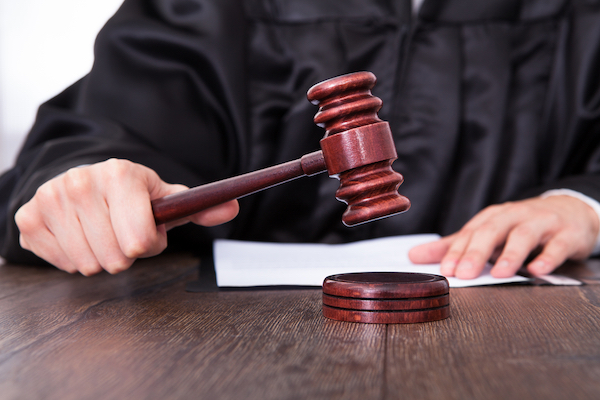 Nobody accused of a federal crime should be penalized for exercising their Sixth Amendment right to trial. And yet, because of the trial penalty, that happens all too often.[1]
Nobody accused of a federal crime should be penalized for exercising their Sixth Amendment right to trial. And yet, because of the trial penalty, that happens all too often.[1]
The trial penalty refers to “the substantial difference between the sentence offered in a plea offer prior to trial versus the sentence a defendant receives after trial.”[2] At least in part because of the trial penalty, federal criminal trials are on a steep decline. Thirty years ago, 20% of federal criminal cases went to trial.[3] Today, fewer than 3% of federal criminal cases result in a trial, and more than 97% of criminal cases are resolved by plea.[4] As the National Association for Criminal Defense Lawyers (“NACDL”) has accurately observed: “[t]he Sixth Amendment right to trial [is] on the verge of extinction.”[5]
The trial penalty can be traced back to the sentencing reform push of the 1980s, which led to the creation of mandatory minimum sentencing provisions and the sentencing guidelines, and in turn, more powerful prosecutors and less powerful judges with more limited discretion. Charge and fact bargaining, excessive guidelines ranges, departure provisions conditioned on pleading guilty, and statutory mandatory minimums, are all key reasons for the emergence of the trial penalty. For example, rather than reserving mandatory minimum sentencing provisions for the most culpable defendants, prosecutors have at times used them “to strong-arm guilty pleas, and to punish those who have the temerity to exercise their right to trial.”[6]
As long as the trial penalty exists, the Sixth Amendment right to trial—the bedrock of the American criminal justice system—will be in serious danger.[7] Eliminating the trial penalty will help to revive the Sixth Amendment right to trial. The necessity and value of trials in a free society governed by the rule of law is beyond the scope of this post, but among other things trials have the salutary effect of requiring the government to prove its case beyond a reasonable doubt before a judge and jury. The decline in the number of federal criminal trials unfortunately means that the government’s interpretation of the reach and scope of various federal criminal laws is too often left untested and unchallenged.
While our federal criminal defense and white-collar team is deeply experienced in courtrooms across the country and ready to take your case to trial, the trial penalty is a real factor to consider in evaluating whether to take a case to trial. This is just one of many issues we discuss with our clients in developing case strategy. The decision to go to trial is multi-faceted and requires careful analysis of personal, professional, and legal issues, among others. The trial penalty should be only one consideration among many.
[1] David S. Abrams, Putting the Trial Penalty on Trial, 51 Duq. L. Rev. 777 (2013) (“The ‘trial penalty’ is a concept widely accepted by all the major actors in the criminal justice system: defendants, prosecutors, defense attorneys, court employees, and judges.”) (emphasis added).
[2] NACDL, “The Trial Penalty: The Sixth Amendment Right to Trial on the Verge of Extinction and How to Save It,” (available at: https://www.nacdl.org/getattachment/95b7f0f5-90df-4f9f-9115-520b3f58036a/the-trial-penalty-the-sixth-amendment-right-to-trial-on-the-verge-of-extinction-and-how-to-save-it.pdf).
[3] Id.
[4] Id.
[5] Id.
[6] Id.
[7] Id. Thankfully, the NACDL and other organizations have long sounded the alarm and recognized that broad reforms are urgently needed to eliminate the trial penalty. For example, in 2019 the Federal Sentencing Reporter released a double issue entitled, “The Tyranny of the Trial Penalty: The Consensus that Coercive Plea Practices Must End.” In the meantime, the NACDL is seeking to address the trial penalty at least in part through its Trial Penalty Clemency Project, which pairs volunteer lawyers with applicants seeking executive clemency in cases where the accused suffered from the trial penalty at sentencing.
 Trial Attorney Blog
Trial Attorney Blog


